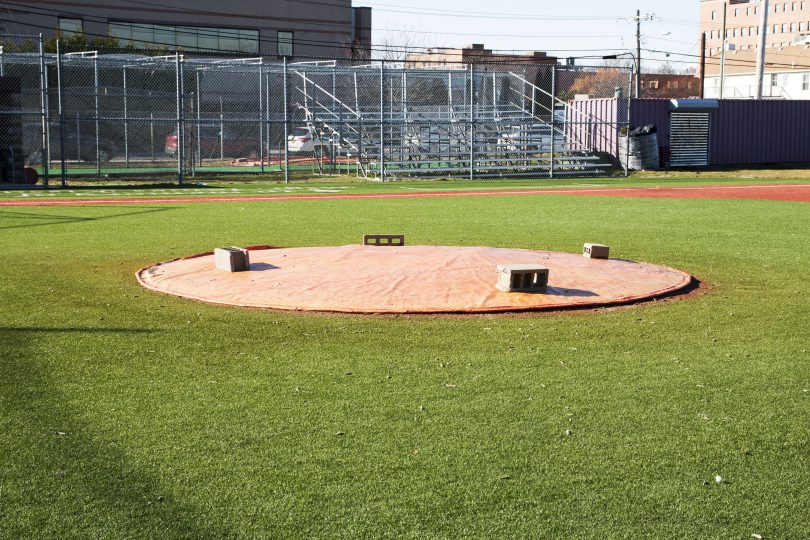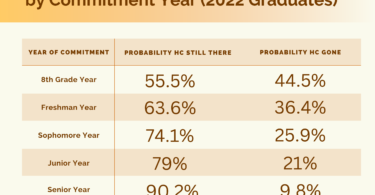The dog days of summer are ahead and that can only mean one thing– summer baseball is right around the corner. That may seem counter-intuitive after the last year, but CDC guidelines and the lifting of dead periods indicate that summer baseball will be back in full gear. If you are trying to decide how to spend your summer– what showcases or events to attend, what team to play for, and how to balance development, exposure, and rest this summer, this 3-part mini-series is for you! We start off by exploring showcases and camps in this article, we follow up by tackling how to decide where to play in Part II, and Part III brings everything together with a discussion on balancing development, exposure, and rest.
For each of your summer baseball decisions, your skill level and financial situation will dictate the options available to you. Your goals as a ball player and knowledge about each option will help you make educated decisions about what’s best for you in the short and long-term. Keep in mind that college baseball is as competitive as ever and you’ll need a realistic perspective about your abilities and goals. With that in mind, let’s explore some of these ideas and help you figure out what’s best for you.
First, consider your skill level. Are you getting invited to invite-only events? Have schools already expressed interest? Are you one of the better players at your school or in your league? If the answer to these questions is yes, then you are well on your way in the recruiting process. If you are still working hard to get noticed and improve your game, that’s okay too. There are good summer options for players at every stage of the recruiting process. It’s important to remember that the D1 recruiting rules have changed. Since you will be unable to visit with college coaches on campus tours prior to junior year of high school, really pushing the exposure envelope in the underclassmen (freshman and sophomore) years of high school doesn’t make sense unless you are a premier player . You won’t be able to make a fully informed decision until junior year at the earliest. This is a big difference from several summers ago when top tier players could commit with all the information they needed at any point of high school. With these changes in mind, let’s look at how you can decide on showcases and camps.
Showcases
Health Notice: You should never go to a showcase if you have not been throwing regularly and/or do not have your arm in mid-season form. This is a recipe for injury.
About Showcases: As we discuss at length in The Truth About Showcases, attending showcases are a recruiting luxury, not a necessity. Despite all the hype that showcases can create, there are many events that will do little more for your recruitment than drain your pockets. Unfortunately, you can expect these events to be in overdrive this summer as companies will be eager to get back to making money under the guise of “necessary exposure.” The idea that all exposure is good exposure or that you can’t get recruited without attending these events is flat out wrong. Because there are many people trying to use showcases to profit from parents and players who don’t know any better, doing your research before signing up is a must. If you are worried because you can’t afford to attend showcases or camps, take a look at our article on useful free alternatives and how to leverage social media to get recruited. that can be just as effective or .
If you are planning to attend a showcase, make sure you know the total cost and what you are getting for your money. Does the cost include only a pro-style workout (running, defensive skills, batting practice, bullpen) or does it include game play as well? Pay-to-play pro-style workouts by themselves should be substantially lower in cost, showcases with game play are always best if you have the option. Take a close look at the refund policies for weather or other reasons. Make sure you know if the showcase is intended mostly for exposure or mostly for evaluation. If it is meant for exposure, is there a list of college coaches attending? If it is for evaluation, who is going to do the evaluation? Seeking honest, objective feedback in the recruiting process is a must, but for-profit showcases who rely on your happiness and attendance to exist have little incentive to tell you the truth about where you need to improve and where you are falling short. They are likely to tell you what you want to hear and encourage you to come back again. Other things to consider – what do you get for going (hat, t-shirt, video, etc) and is there downtime in the schedule? Showcase video packages usually cost extra and they can be very expensive. We’ve explained why you should have a skills video, and with a little effort, you can put the same thing together with your iPhone and a YouTube account.
Our Suggestion: We suggest that you always do your homework on showcases and limit the pay-to-play showcases you attend to events that you know will put you in front of schools that interest you the most. Invite-only showcases (where you have been selected/invited for being a top player in your area) are often better attended than random showcases because coaches want to hone in on the better talent pool. Younger players (underclassmen particularly) should focus on development rather than exposure and save showcases for later in the recruiting process. Developing into a player with recruitable skills must come before showcases will be of any use to you.
Why: Showcases are expensive and provide college coaches with only a snapshot of what you are like as a player. Most of the time, they give coaches a feel for a player’s tools and whether they should follow up to see that player in game play. Video can do the same thing. Be smart and check out any showcase before you go. If you have the money to go and you are ready for exposure, pick a showcase that will allow you to show your tools to a variety of schools you are interested in. Showcases turn out best for players who have at least one above average skill or tool to show off. This is where honesty about your ability can really save time and money. If none of your tools will allow you to stand out in a potentially large group of players, you may not be ready for or benefit from a pay-to-play showcase yet.
If you decide not to play on a team or spend the summer training and instead go from one showcase to the next, you are really missing the point. Running a good 60-yard dash, hitting the ball far in BP, and throwing a ball hard across the infield or outfield are all great skills, but doing that over and over doesn’t make you a better baseball player or mean that it will translate to game play. Remember, college coaches want baseball players who can help a team win; they are not looking for showcase robots.
Camps
About Camps: Camps can be a great way to get in front of college coaches while focusing on your development. Instructional college camps are often a fraction of the price of “showcases” and are more likely to provide valuable feedback and instruction. Camps are good for players of any age because they expose you to college level drills, college level instruction, college facilities, and college coaches. All that is great preparation for later in the recruiting process.
Our Suggestion for Underclassmen:
Go to local college camps and be a sponge.
Why: Camps can be a tremendous learning experience and give you insight into what college coaches are looking for. Pay attention to details and notice the way college coaches want things done. Learn from the instruction, ask questions, and ask for feedback. It’s a great time to interact directly with college coaches and learn. Don’t be scared to speak up: after all, you want to leave a strong impression and set the tone for your upperclassmen years.
Our Suggestion for Upperclassmen: Look for camps at your schools of interest (for exposure) or schools where you really want to learn from the coaches (skill development). Develop an understanding of what these coaches want to see from players they recruit and put your best foot forward. Be a sponge and ask questions. Stand out from the group of campers in a good way by being more invested, being more focused, out-hustling, and getting to know coaches on a more personal level. Take advantage of the facetime with the coaching staff and make sure when camp is over, you’ve used the time to learn as much as you can, show the coaches the best version of yourself, and make sure the coaches know who you are.
Why: This will be a good chance to learn and get in front of the coaching staff to show what you can do. Make sure you introduce yourself to the coaches on day 1 of camp and let them know you are interested in their schools. Each day at camp, make it a point to seek out and greet the coaching staff with a good firm handshake and ask if there’s anything you can do to help. If you are attending a camp to leave an impression, be realistic about your ability and show up knowing the type of player the school is most likely looking for.
Now that you have the resources to play the showcases and camps you may consider attending, we can take a look at things to consider when deciding what team you should play for. That’s coming up in Part II. Be sure to check back for it later this week!







